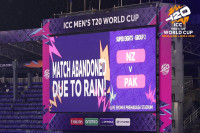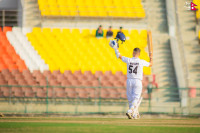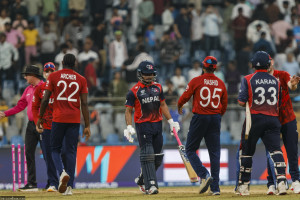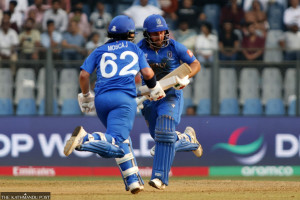Sports
For Nepali sports officials, Olympics again provides an opportunity for junket
Officials claim there was no controversy in selecting the delegation but promising talents were left behind. Those in Tokyo do not represent the sports Nepal is competing in.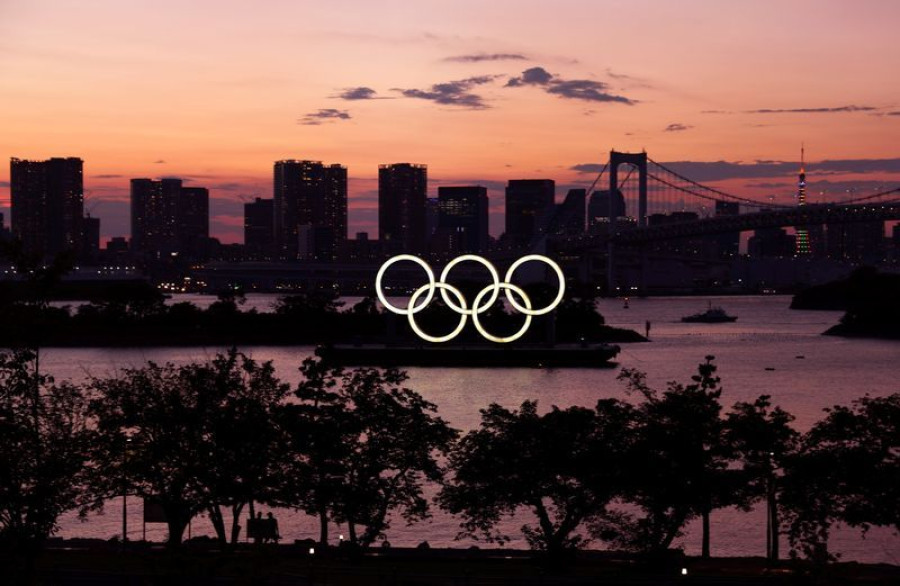
Prajwal Oli
Last week, Jeevan Ram Shrestha, president of Nepal Olympic Committee, proclaimed that there was no “jatra” while selecting the Nepali delegation for the Tokyo Olympic Games.
Postponed by a year because of the Covid-19 pandemic, the 32nd Olympic Games starts on Friday without spectators as the number of infections continues to rise in the Japanese capital.
“In the past we always witnessed a ‘jatra’ during the time of the Olympic Games,” said Shrestha, at a press conference on July 14 organised to announce that decorated swimmer Gaurika Singh would be Nepal’s flag bearer at the Games.
Shrestha was using the term “jatra” to refer to no infighting among sports officials to be part of Nepal’s delegation at the Games.
Compared to the number of athletes, the number of Nepali officials has always been much higher in the Olympics.
Of the total 26 members of Nepal’s delegation this time only five are athletes. Besides Singh, swimmer Alexander Shah, shooter Kalpana Pariyar, judoka Soniya Bhatta and sprinter Saraswati Chaudhary are the players. Singh and Shah will compete in women's and men's 100m freestyle events. Pariyar will vie in the women's 10m air rifle while Bhatta will battle in women's 48kg weight category in judo. Saraswati will represent Nepal in the women's 100m race.
There are four coaches for the four sports. The remaining 17 are officials.
Shrestha, who is also a Member of Parliament, may not have been wrong in his proclamation of the absence of jatra as the infighting between Nepal Olympics Committee, National Sports Council and other individual sports bodies to send officials to the Tokyo Games was not public.
But what is astounding is the choice of officials.
Prakash Sumsher Rana and Tulasa Thapa are going as team managers for judo which has a single competitor. But neither Rana nor Thapa are associated with the sport. While Rana is president of Nepal Taekwondo Association, Thapa is president of Nepal Kabaddi Association. While the former is also a secretary of Nepal Olympic Committee the latter is a member of parliament and also wife of Bamdev Gautam, a top CPN-UML leader.
Similarly, Nepal Fencing Association president Sunil Kumar Shrestha is in Tokyo as the manager of the one-member shooting team and while Nepal Boxing Association president Ram Awale is the manager of the swimming team.
Nepal Olympic Committee deputy general secretary Pitambar Timalsina has flown from the United States, where he has been living for more than a year, in the capacity of the athletics manager.
Those associated with Nepali sports, however, are not surprised.
"This is not the first time that such a scenario has surfaced. The situation was similar in the past Olympics as well,” said Diwakar Lal Amatya, a former vice president of Nepal Athletics Association and member of the International Council of Sports Science and Physical Activities. “This is because cadres of political parties have captured sports organisations. For them mega events like the Olympics and Asian Games are opportunities for an all-expenses-paid tour.”
Officials, on the other hand, disregard athletes who have worked for years to participate in the Olympic Games.
Gopi Chandra Parki, who won the 5000m gold in the 13th South Asian Games held in December 2019, was among the few Nepali athletes to ever win a middle distance gold in an international competition.
But realising that he would have a better chance to participate in the Olympic Games if he shifted to the 42.195 kilometre marathon, he concentrated on the endurance race.
He won the Nepalganj marathon in November last year with a timing of 2 hours 18 minutes 59 seconds, better than Nepal’s Kiran Singh Bogati who won the gold in the 13th South Asian Games.
Legendary runner Baikuntha Manandhar holds the national and South Asian record with 2 hours 15 minutes 3 second set during 1987 South Asian Games in Kolkata.
After Parki won the Nepalganj marathon, Nepal Olympic Committee President Shrestha and General Secretary Nilendra Shrestha, both of whom witnessed Parki’s feat, as well as Nepal Athletics Association President Rajiv Bikram Shah, assured him of participation at the Tokyo Olympics. They even told him that his timing was good enough to qualify for the Olympics as a marathoner.
Three categories of players qualify for the Olympics. One, qualifiers who meet the criteria set by governing bodies of various sports. Two, universality place is guaranteed for all countries in swimming and athletics even if their athletes fail to qualify for Olympics through the qualifiers. Three, wildcard entry is given to a player who does not qualify for the Games but are given spots based on their past performance and ranking in the sport.
But at the last moment, Parki was told that his participation was scrapped.
Parki was told he could not be included because the International Association of Athletics Federations received more applications for participation in the marathon than the actual quota.
"We were unable to send Parki to the Tokyo Games because the number of participants in the marathon exceeded the quota allocated for the event and his best timing failed to meet the requirement for the quota" said Shah, the Nepal Athletics Association president, referring to his Nepalgunj timing.
The Nepal Olympic Committee decided to send Chaudhary instead.
Parki’s reason for his exclusion is a different one.
“I could not participate in the Olympics because the Nepal Athletics Association did not reply to the International Association of Athletics Federation letter on time. They sent the first letter in December last year, but did not reply to the federation on time,” Parki told the Post. “Had they replied to the IAAF by March, I would have been in Tokyo for the Games.”
Former athletes place the blame for the fiasco on the country’s sports governing bodies.
“As the governing body of athletics in the country, National Athletics Association, is the main culprit for his exclusion from the Games,” said Rajendra Bhandari, an Olympian and former South Asian Games gold medalist in athletics. "The Nepal Olympic Committee, as the main body to coordinate with international agencies, also needs to be held accountable for this."
At 31, Parki may not get another chance to represent Nepal at the Olympic Games.
"I did not stop training for a single day and spent more than Rs 500,000 during training with hopes that I would be competing at the Olympics,” Parki told the Post. “I have not even visited my hometown in Dhangadhi since the day I was assured of participation at the Tokyo Olympics.”
Nepal began participating in the Olympic Games in 1964 held in Tokyo and has participated in every one except the 1968 Mexico City Games. None of the 87 who have represented Nepal has won a medal at the Olympics other than Bidhan Lama winning a bronze medal in kata demonstration at an exhibition event in the 1988 Seoul Olympics. However, the Games is an opportunity to compete with the best in the world and better their own personal records.
“I am confident I would have broken Baikuntha Manandhar’s record [at the Olympics],” Parki said.
But now he will have to break that record elsewhere.
“As a player I will work hard and continue to give my best in upcoming days as well. I am in my top form and still continuing my training,” said Parki of his future plans. “If the NAA and the NOC officials are really serious about the sport then they should provide me opportunities in other top level races. But I am not begging that they need to select me by hook or crook. I am ready to fight for the qualifier.”
According to Amatya, the former athletics official, others in the past athletes were not as determined as Parki is.
“A lot of players who had become victims of malafide intentions of sports officials left their sports altogether because of the frustration,” he said.
But, in Parki’s case, the National Sports Council, the apex sports governing body in the country, did not even question his exclusion.
“The main problem is that we don’t have a proper system in the country. Sports officials think that they are bigger than players. But they need to understand that they exist only because of players and sports,” said Bhandari. “Instead they have been using players for their personal benefit whenever they require or else they are ignored.”
Ramesh Kumar Silwal, member secretary of National Sports Council, is the chef de mission of Nepali delegation in the Tokyo Games.
As for Nepal’s athletes, they do not have a realistic chance of winning a medal. All players have set a target of improving their individual performances and officials have the same hope.
But apparently, according to former athletes, excellence in their chosen sports are not enough for participation at the Olympic Games.
“An athlete not only needs to play his game, but also be able to play the system. Even if you are capable you need to know exactly how to fit into the system,” said Bhandari. “The situation will not change until there are the right people in the right places and sports becomes a priority of the state.”




 18.95°C Kathmandu
18.95°C Kathmandu

